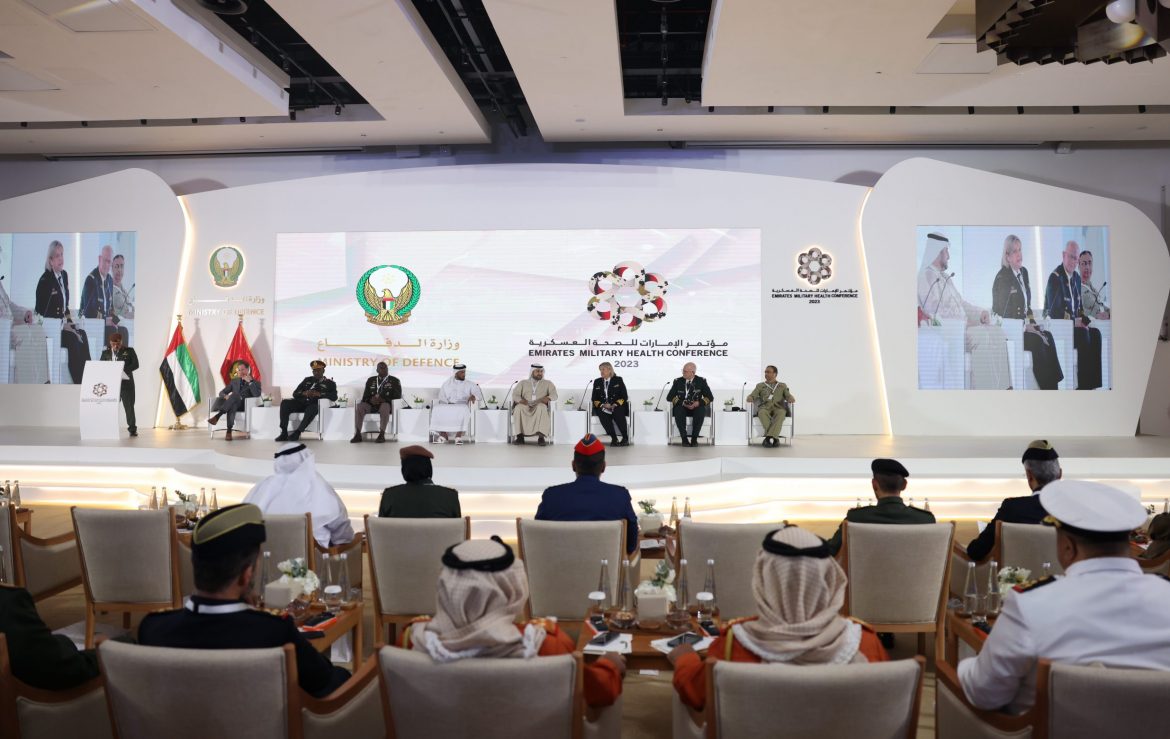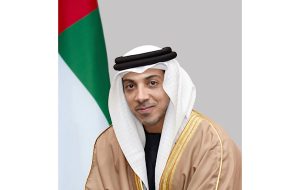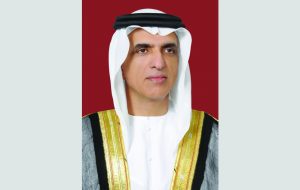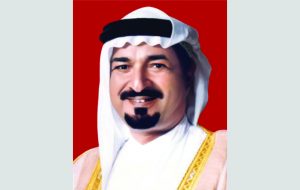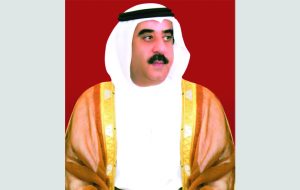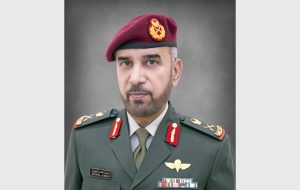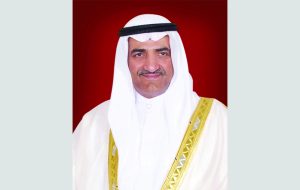On January 18 and 19, the UAE’s Ministry of Defence organized the 1st edition of the Emirates Military Health Conference in Abu Dhabi, under the patronage of His Excellency Mohammed bin Ahmed Al Bowardi, Minister of State for Defence Affairs.
His Excellency Matar Salem Al Dhaheri, Undersecretary of the Ministry of Defence, inaugurated the conference with the attendance of a host of important figures including H.E. Dr Abdullah Mishal Al-Sabah, Undersecretary of the Ministry of Defence in Kuwait, His Excellency Sheikh Abdullah bin Muhammad Al Hamed, Head of the Department of Health in Abu Dhabi, official delegations from fraternal and friendly countries, and senior officers from the Ministry of Defence, and a large number of experts and specialists in the field of military and civilian health.
More than 15 entities sponsored the conference, including Abu Dhabi’s Health Department, Global Medical Supply Chain, INTOBOX GLOBAL, D-med, G42, NOVARTIS, and GULF DRUG.
Lessons Learned & Future Vision
Under the slogan, “Lessons Learned and Future Vision”, the 1st edition of the conference was organized for employees of the Ministry of Defence and workers in the healthcare sector.
The conference aimed to serve as a platform for dialogue and exchange of knowledge and experiences between elite specialists and experts on current trends and developments in the field of military health.
The conference aims to enhance cooperative efforts between the institutions of the military and civil sectors while shining a light on successful initiatives improving the quality of health and healthcare for employees of the Ministry of Defence.
Furthermore, it sought to bolster the process of exchanging ideas on enhancing current procedures and developing new strategies to provide high-quality medical services to military personnel and employees.
The conference featured a series of discussions and dialogues, representing a unique opportunity to benefit from the expertise of specialists on a range of issues related to military health.
Speakers
The speakers’ list at the conference included prominent international academics, senior military personnel, representatives of both governmental and non-governmental organizations, and experts specialized in dealing with the challenges facing the employees of the Ministry of Defense and their families.
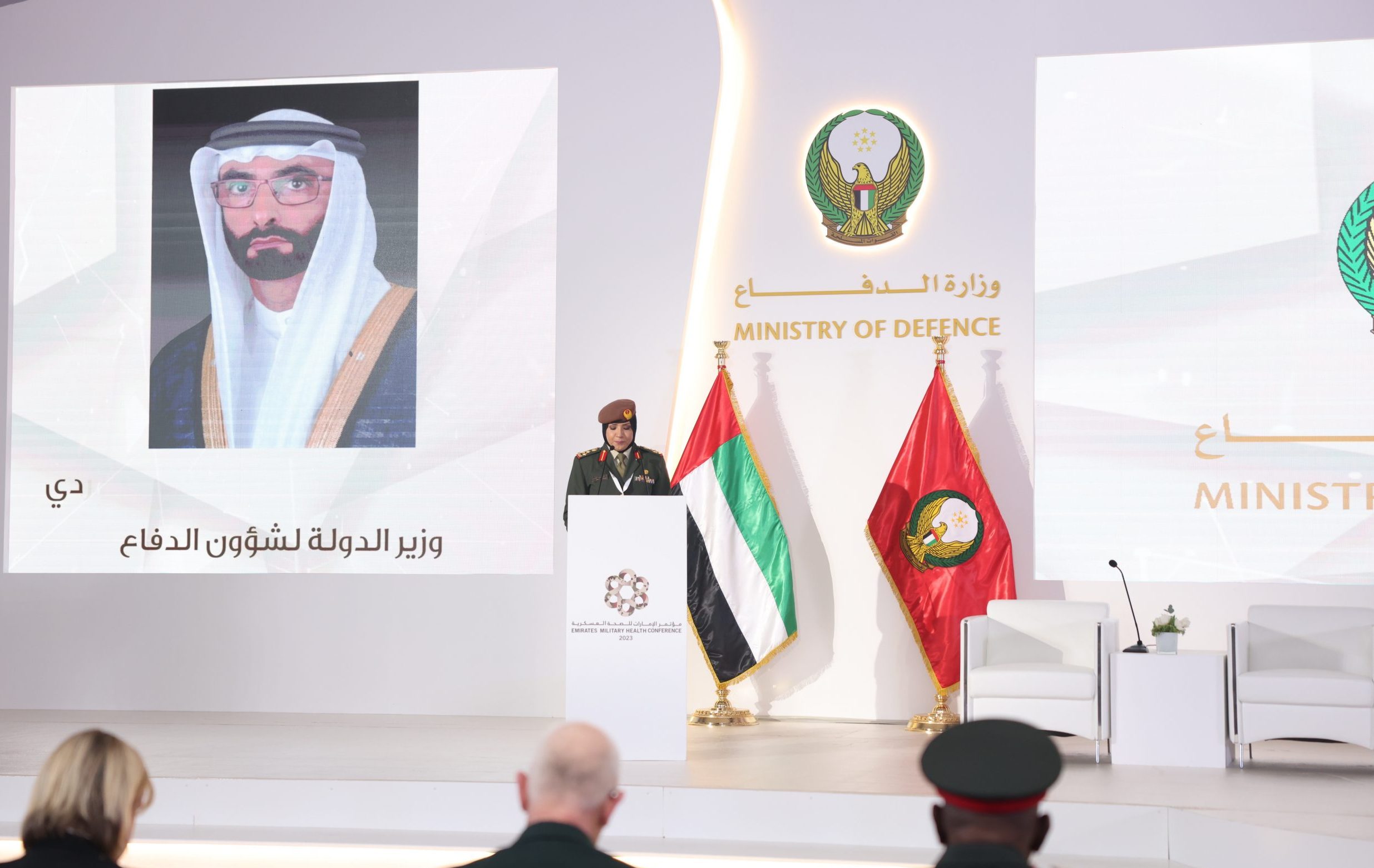
“The Emirates Military Health Conference is a unique event in line with the vision of the UAE to enhance cooperation and joint efforts with the international community”, said H.E. Mohammed bin Ahmed Al Bowardi, Minister of State for Defence Affairs.
“The conference attracted a group of renowned experts and specialists from around the world to exchange knowledge and expertise and discuss some of the most vital military healthcare issues” he added.
“We live in tumultuous times, with the health needs of members of the armed forces and civilians in the affected areas becoming greater than ever” he continued noting that “modern technological innovations will help us provide such services effectively, and the Emirates Military Health Conference is an ideal platform to learn about such developments and more”.
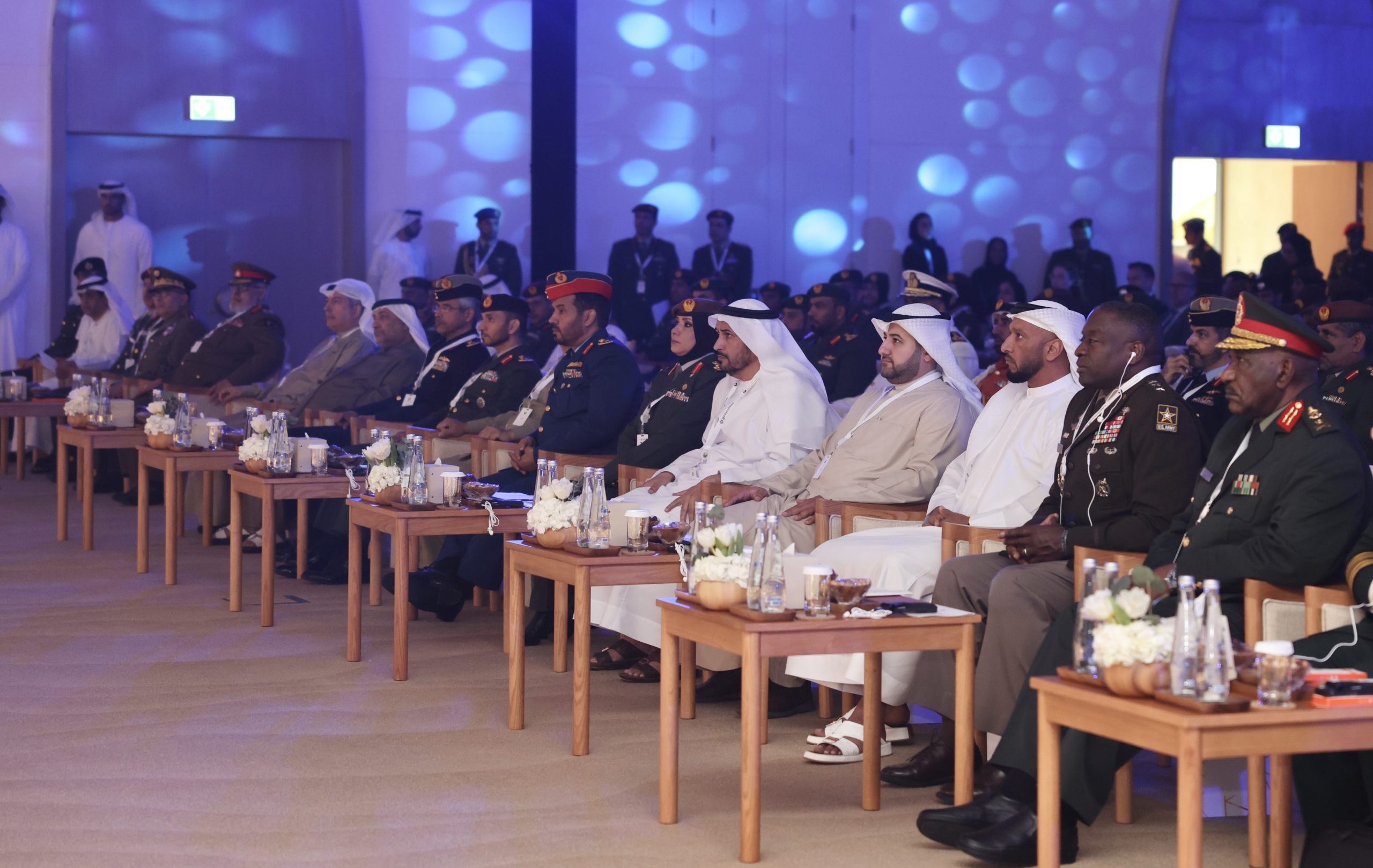
In the main session of the conference, Lt Gen Raymond Scott Dingle, Surgeon General of the United States Army and Diamond D. Hough, Medcom command sergeant major, spoke about the role of military medicine in maintaining the readiness of US forces, as well as the role of non-commissioned officers and how to train the medical staff to maintain medical readiness.
The two also discussed the role of military medicine in strengthening alliances and partnerships among U.S. allies and partners through providing services, building confidence, developing capabilities, and expanding the scope and shape of operations.
The conference won the support of the International Committee of Military Medicine (ICMM), a non-political international organization consisting of more than 100 countries, founded in 1921 after the First World War, to which the UAE joined in 1984.
Day 1
On its first day, the conference hosted dialogue sessions and discussions on important topics related to military health, trauma and emergency medicine, injuries and burns, rehabilitation for combat, and bolstering cooperation between the military and civilian sectors in the health sector.
The second session of the conference titled “Combat Casualty Care Readiness“ touched on tactical medical readiness for injuries, discussing medical readiness training, and quantifying military-relevant medical readiness through the knowledge, skills, and abilities project, leveraging military-civilian partnerships for deployment readiness, and the strategic value of military and civilian trauma and emergency services cooperation.
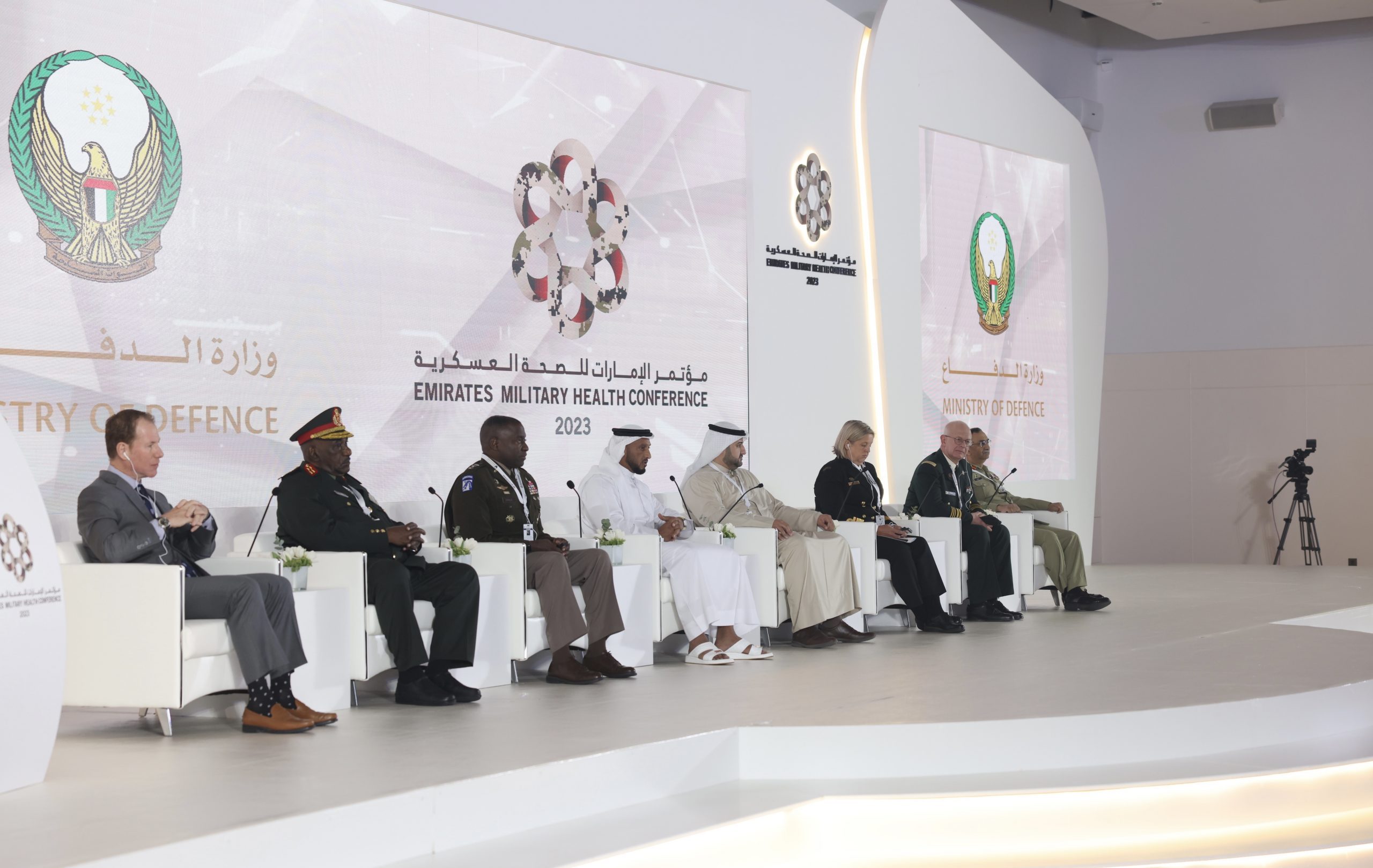
Furthermore, the third session titled “Full Spectrum Combat Casualty Care” discussed comprehensive care for tactical injuries and touched on subjects ranging from tactical combat casualty care- critical rescue skills for all service members, and prolonged field care, to enroute critical care- lessons learned from recent conflicts.
Moreover, the 4th and final session of the first day, titled: “Future Challenges”, touched on the implications of radiation injuries in combat trauma care and military-civilian cooperation in the health sector.
These various events allowed participants to exchange ideas and visions, propose innovative solutions for dealing with the challenges facing military healthcare providers, and learn about best practices that can be applied in their institutions.
The military health exhibition
Alongside the educational and practical experiences and knowledge presented through the Emirates Military Health Conference, organizers held a military health exhibition that included exhibitors from all over the world who displayed the latest products and services related to military healthcare.
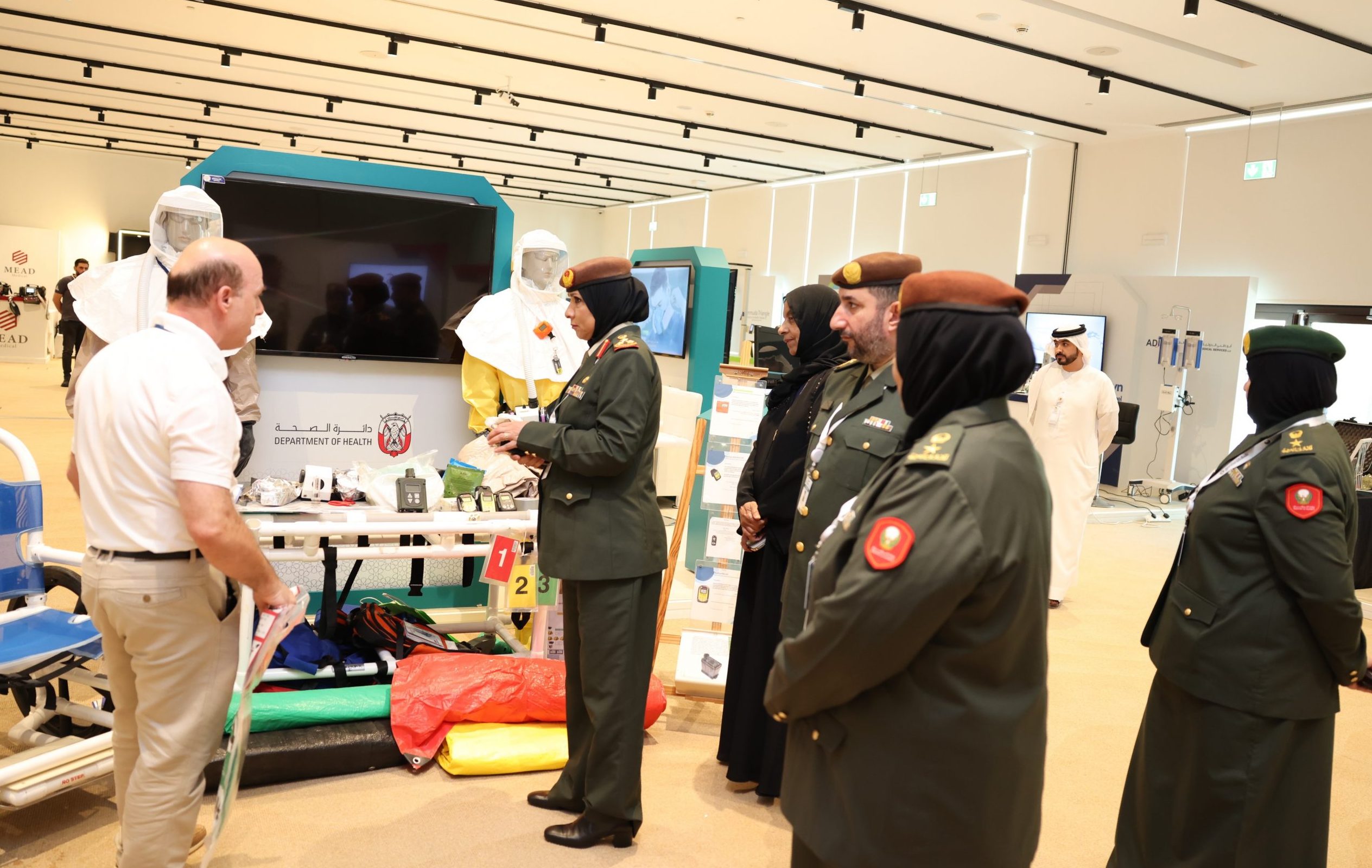
Furthermore, Staff Brigadier Dr Aisha Sultan Al Dhaheri, Head of the Executive Department of Military Health toured the exhibition, where she was briefed on the latest products, innovations and medical systems that were showcased by local and international exhibitors.
The Emirates Military Health Conference represents a very important platform for acquiring important knowledge and experience about the challenges currently facing the military health sector as well as developing strategies and innovative solutions to address these challenges.
Day 2
The second day of the conference included dialogue and discussion sessions regarding military health and emergency medicine, injuries and burns, and in-Combat Trauma Care.
The main sessions of the conference touched on several main topics, with the 1st session, titled “Complex Combat Casualty Care” discussing the role of neurosurgery in the treatment of central nervous system penetrating injuries, advanced treatment of maxillofacial combat injuries, and the complex reconstruction of combat injuries.
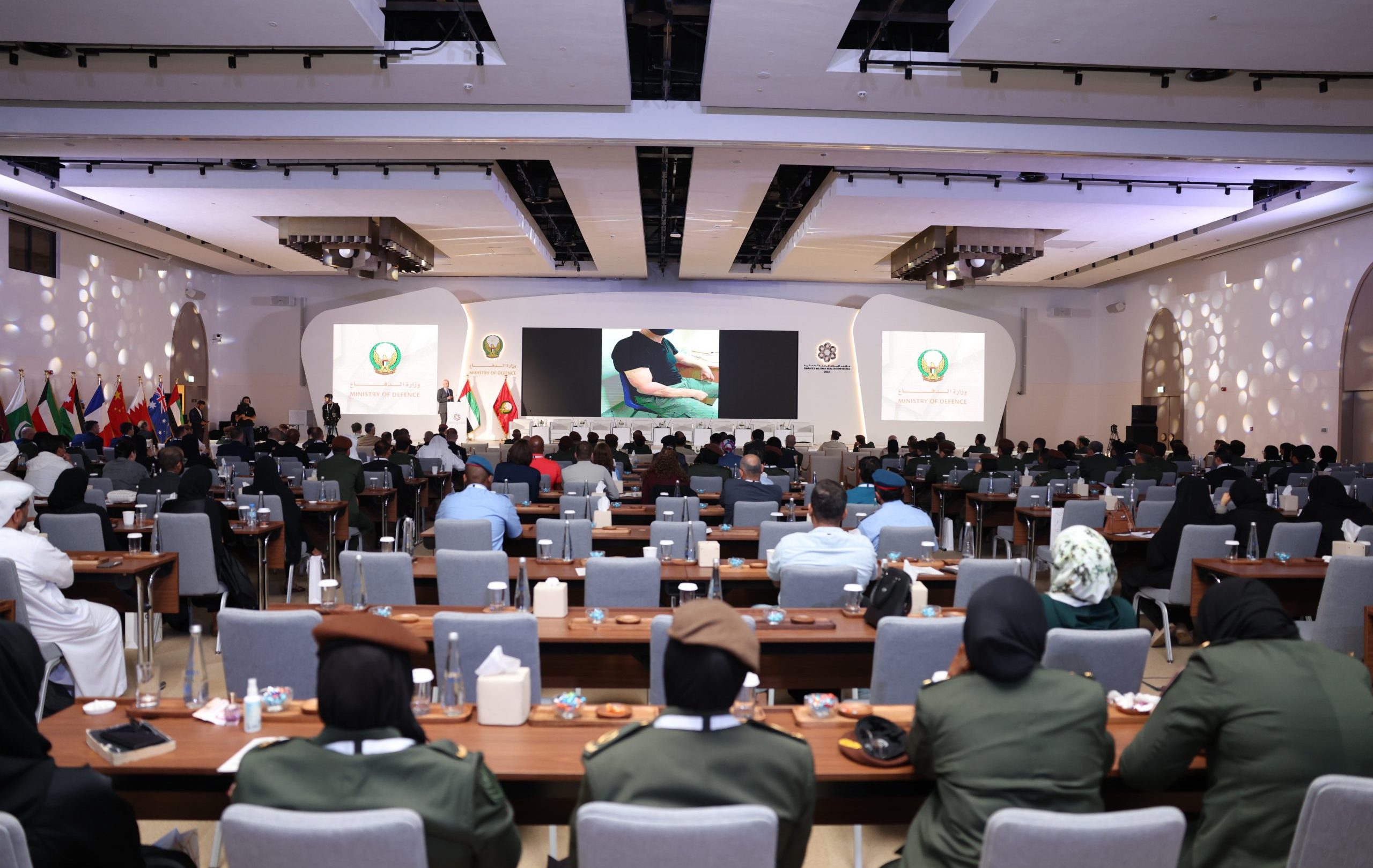
The 2nd session, titled “Trauma Quality Improvement” discussed Combat Medical Training, the impact of deployed trauma treatment systems on combat casualty care outcomes, and the importance of postmortem CT scan evaluation for combat casualties
Furthermore, The 3rd session, titled “Complex Care”, touched on several topics, including the role of pain management in combat casualty care, the role of regional anaesthesia on the battlefield, and mangled extremity management in an expeditionary setting.
Moreover, the 4th session, titled “Role of Surgery in Battles” touched on prominent topics such as trauma experience in recent conflicts, the role of plastic surgery in combat casualty care, and the principles of damage control surgery and damage control resuscitation, in addition, the session included a dialogue session for the discussion of combat trauma case records in the UAE.
Results and recommendations
At the conclusion of the conference’s activities, Colonel Dr Farah Saeed Al Zaabi, Chairman of the Scientific Committee of the Emirates Military Health Conference, stressed the importance of establishing and developing a program for medical readiness training for all military cadres, both medical and non-medical, to help save lives in combat operations.
Adding that medical readiness training must include every aspect of medical support across the full spectrum of military operations, providing all the members of the armed forces with different training and skills depending on their speciality and field of work.
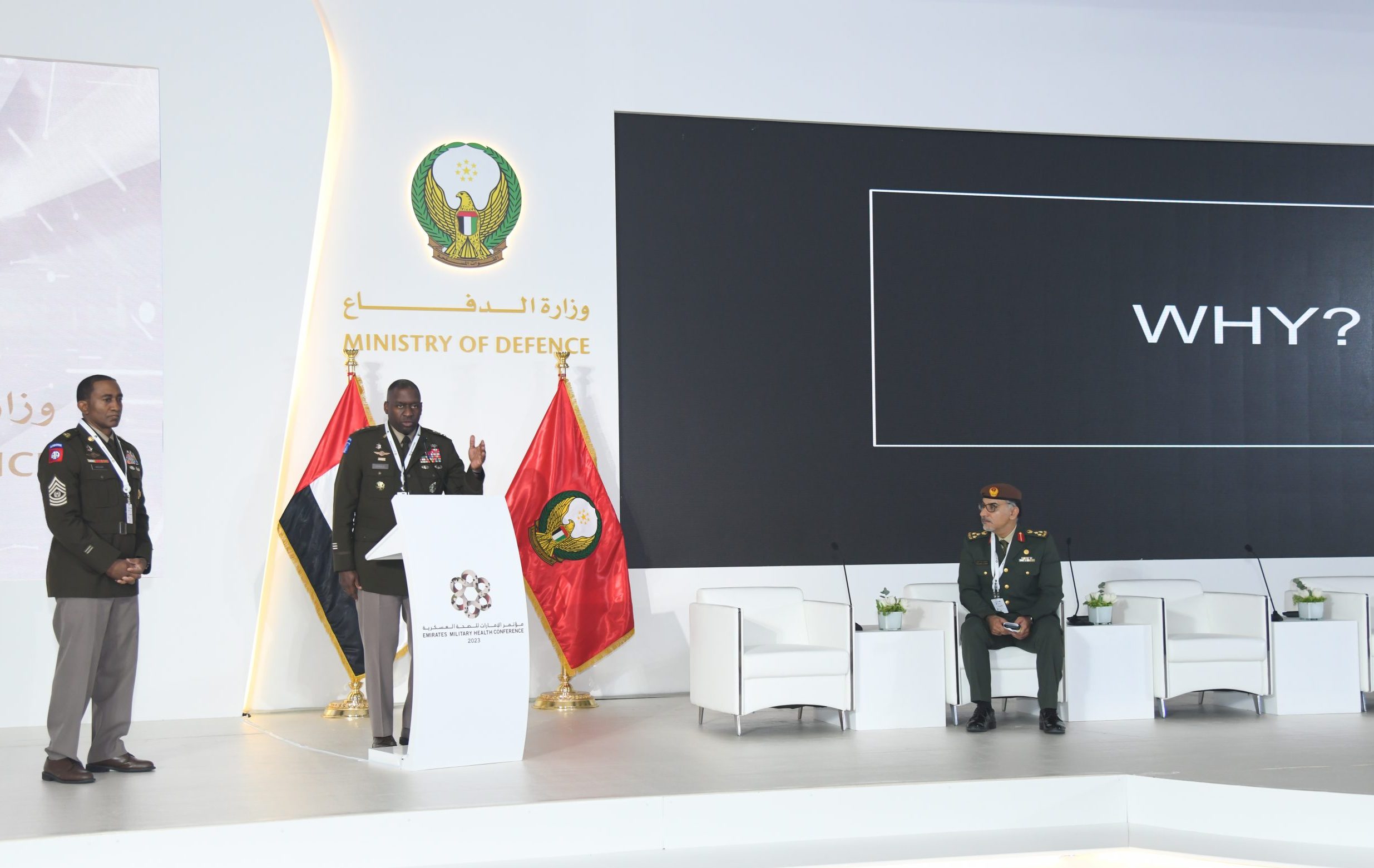
She noted that the lessons learned from the conference point to the need for civilian-military cooperation, to maintain the knowledge, skills and medical capabilities necessary to deal with severe injuries and provide the required medical care on the battlefield.
Al Zaabi explained that conference participants stressed the importance of equipping and training medical staff to apply the principles of long-term care for injuries, especially in difficult environments with limited resources and without evacuation systems.
For their part, the speakers recommended tailoring wartime decision-making and damage control strategies to suit the patient’s condition and available resources.
In addition, the findings of the conference pointed to the need for early and skilful intervention in field injuries in the initial stages, as it is crucial in achieving good long term results.
The activities of the conference concluded that military-civilian partnerships are essential for enabling the military health system to share the lessons learned on the battlefield among healthcare professionals while maintaining the readiness of combat teams.
Furthermore, it indicated that leveraging new technologies and partnerships and expanding telehealth capabilities to meet the needs of the battlefield environment, are essential for the future of military health systems.
It also emphasized the need for improving the process of acquisition and delivery of blood products during combat, upgrading training facilities’ compatibility with current and future medical and tactical training needs, and establishing a robust command system with flexible, scalable capabilities to face evolving challenges.
Coverage by: Razi El-Hadmi – Photography by: Muhammad Hassan Al-Shaer


